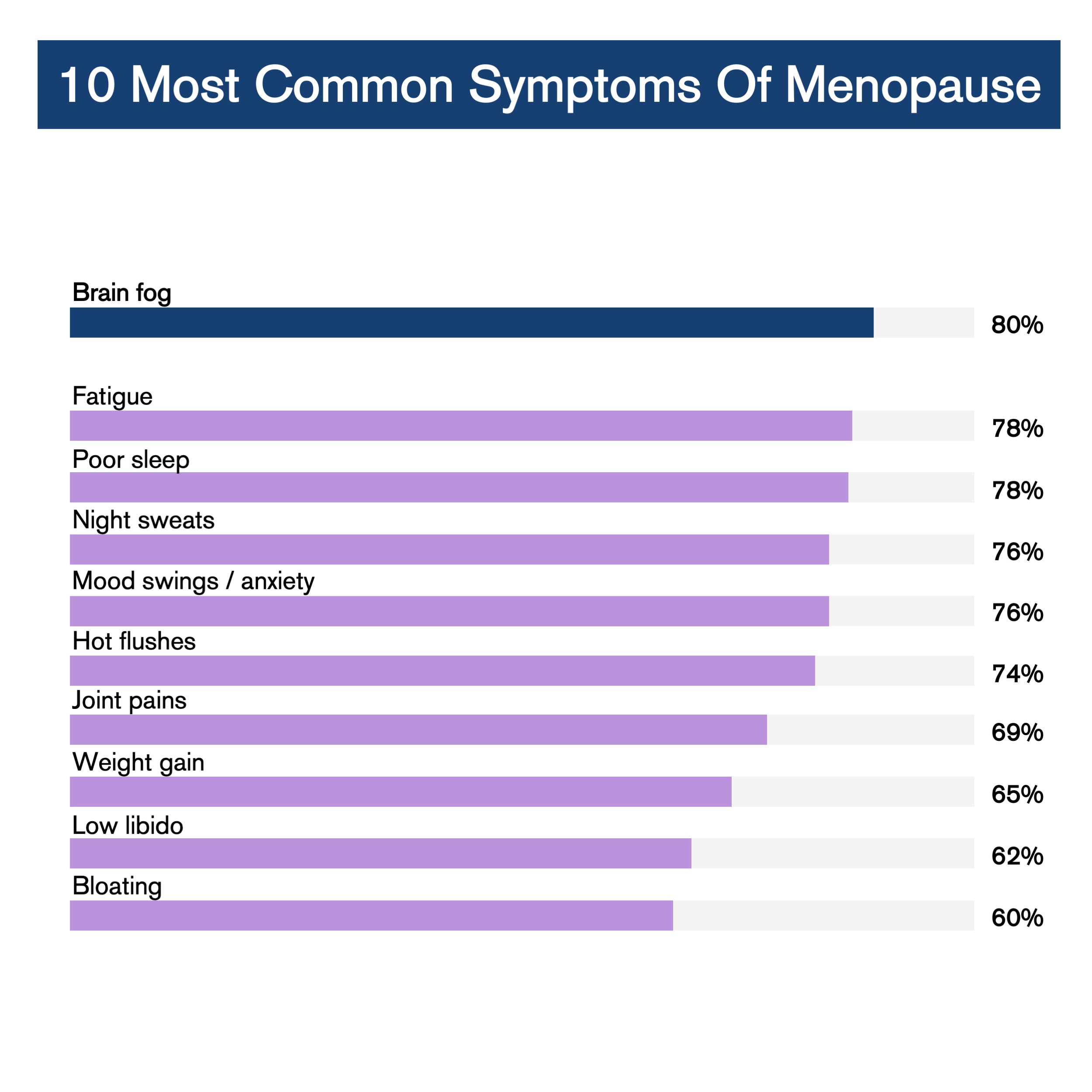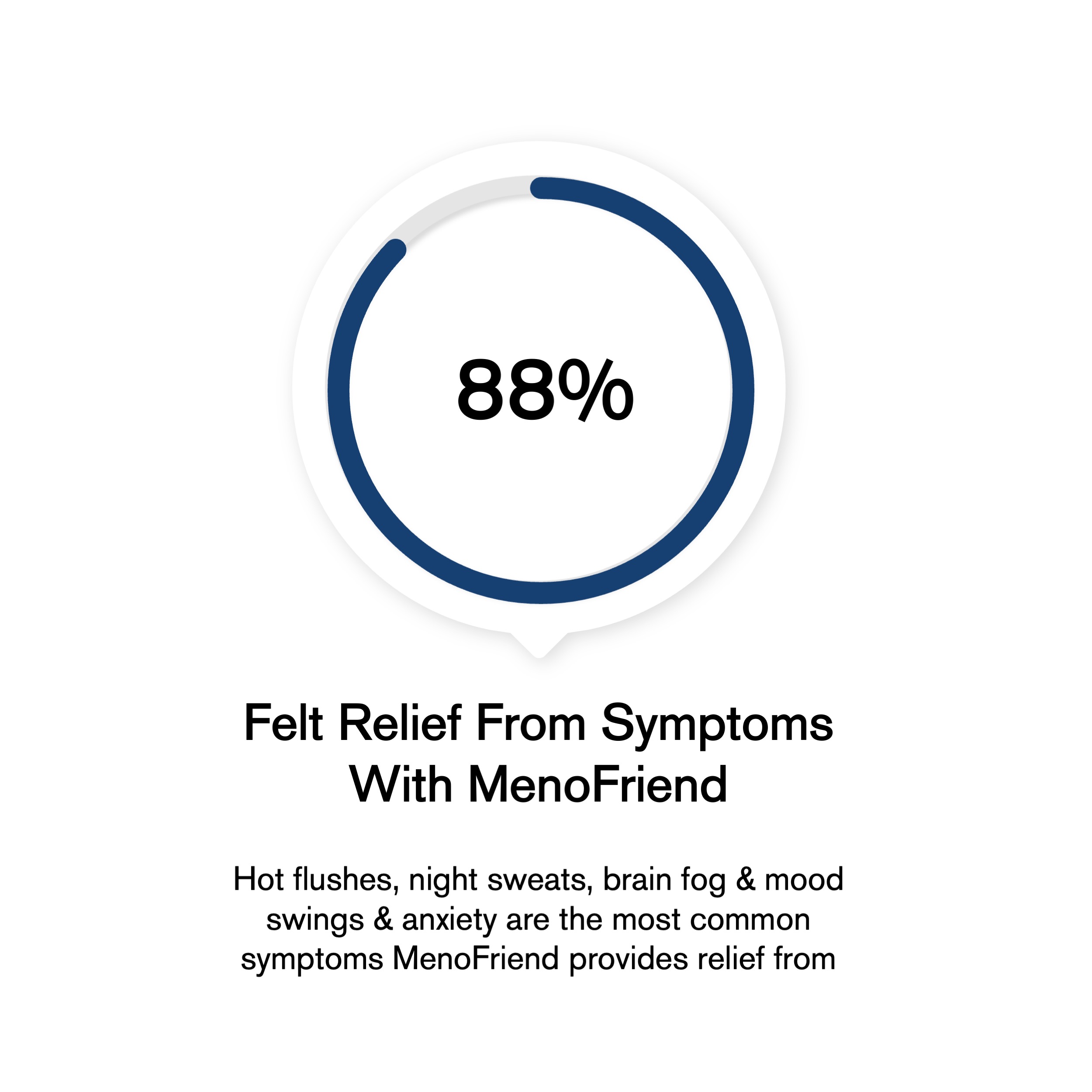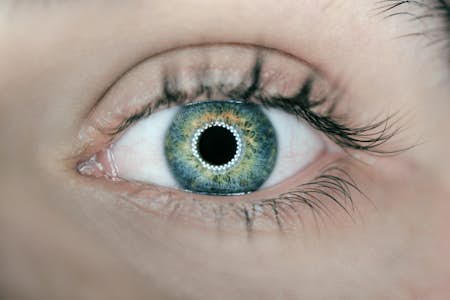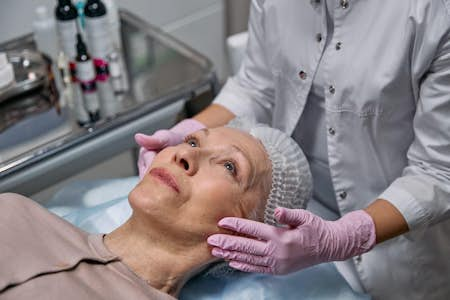For Health Times readers, DR.VEGAN® is offering 20% off your first purchase of MenoFriend® menopause support. Why not try it for yourself today and join the thousands of empowered women across the globe? Shop now with code HEALTHTIMES20. Plus, get free delivery on orders over £10 in the UK PLUS a free refillable pill tin on your first purchase, only at www.drvegan.com.
Why is menopause important?
Menopause impacts us all, not just the women going through it. The women in your life impact you and the society we live in. Think about your friends, colleagues, family members, and neighbours. It is a joint responsibility to support women’s health and allow women to thrive as they deserve to.
Menopause is commonly a taboo subject and plagued by invalidated shame, which is unacceptable given menopause is a natural stage of life that affects half the population. Education and awareness about menopause is needed for everyone in order to shape a progressive and supportive society.
This is a concept DR.VEGAN® is at the forefront of with their #BreakTheTaboo campaign, workplace resources, menopause supplement MenoFriend®, and their Menopause Roundtable video.
What is menopause and perimenopause?
Menopause is defined as 12 months without a period, which commonly happens due to changing hormone levels as a result of ageing. However, there can be several other reasons for early menopause as well.
Perimenopause and perimenopause symptoms, on the other hand, is the transition stage before menopause. This describes the time women’s hormones go through before they have their final period.
Menopause and perimenopause can result in many different symptoms, with each woman having a unique experience. This can have a serious and profound impact on women’s lives, with over 20 common symptoms reported in the latest research conducted by DR.VEGAN®, where over 1,000 women were asked to share their experience of menopause.
Symptoms of perimenopause and menopause
Every woman is different, with some being minimally impacted by menopause. On the other hand, some women can experience debilitating and life-changing symptoms, as explained by women in the Menopause Roundtable short video below, that impact everything from work to relationships and mental health. For example, half of women will experience mild depression due to their menopausal symptoms, while two-thirds will experience a loss in confidence.
Well-known symptoms of menopause
In the extensive menopause research, brain fog was the most commonly reported symptom of menopause. The other most reported symptoms included fatigue, poor sleep, night sweats, hot flushes, mood swings, joint pain, weight gain, low libido and bloating.
 Brain fog
Brain fog
DR.VEGAN®’s research highlighted that 80% of women suffer from brain fog during menopause. Brain fog commonly means you struggle to focus, get confused easily and notice your memory deteriorate.
Poor sleep / Night Sweats
Sleep is commonly affected due to hormone fluctuations impacting your thermoregulation, resulting in night sweats and an increased feeling of heat. Sleep problems can lead to more stress which can also influence weight.
Hot Flushes/hot flashes
Like night sweats, hot flushes occur due to altered control of the body temperature caused by hormonal imbalances. They are a sudden and often intense feeling of warmth and sometimes sweating, usually on the chest and face.
Mood Swings
Mood swings occur due to changes in your oestrogen, progesterone and testosterone levels. These hormones all influence the levels of your neurotransmitters, serotonin and dopamine. Serotonin is associated with well-being, whereas dopamine plays a role in pleasure and motivation. This can result in feeling angry and irritable, sad and anxious.
Weight Gain
Weight gain around the middle is particularly common and can be challenging to get rid of, even with a good diet and exercise. This is caused by changing hormones, which can increase insulin resistance and stress on the body.
Low Libido
The drop in oestrogen and testosterone levels that women experience can decrease sexual desire and lead to vaginal dryness (vaginal atrophy), which may cause pain during sex, ultimately reducing libido. Many women have to use extra lubrication for sexual intercourse during this time.
Bloating
Bloating is more prevalent in perimenopause when oestrogen is higher. Oestrogen can cause the body to retain more water, and this can lead to feeling uncomfortable, full and bloated.
Other common symptoms of menopause include:
- Fatigue
- Joint aches or osteoporosis. We recommend learning about the benefits of Curcumin and Turmeric
- Hair loss / thinning hair, as well as skin issues and brittle nails
- Urinary problems / urinary incontinence
- Migraines
Less-known symptoms of menopause
There are also some more unusual symptoms that many women face that you may not expect to associate with this natural stage of life.
Burning tongue / burning mouth syndrome
Menopause can sometimes cause dryness or soreness in the mouth, which can sometimes feel as if the mouth is scalded. Occasionally people report a metallic taste in the mouth as well. Like other menopause symptoms, it is caused by lowered oestrogen that causes pain-sensitive nerve cells surrounding the taste buds in the tongue to become activated.
The dry mouth and reduced saliva can also contribute to being more susceptible to gum disease, as there is less saliva to wash away the bacteria in the mouth. This can also cause tooth decay in menopause.
Cold flushes
Cold flushes can occur spontaneously or after a hot flush. Sometimes, symptoms such as feeling chilled and shivering can be exacerbated by wearing damp clothes from sweating.
The feeling of insects crawling on the skin (formication)
This horrible symptom of itchy skin (also known as formication) is considered a tactile hallucination, where there is a physical sensation of itching, but without a physical cause. Formication as a menopause symptom is caused by the drop in oestrogen during menopause and can be particularly frustrating and off-putting for many.
Altered spatial awareness
During menopause, women’s perception of depth of vision can change. This can lead to clumsiness or being more accident-prone!
Tinnitus
Tinnitus is commonly described as a ringing, whooshing or clicking that is not actually present. For some people, this can be serious and result in a lack of sleep, irritability and anxiousness.
Body odour
As a result of hot flushes and night sweats, bacteria on the skin can come into contact with sweat and cause a more obvious body odour.
Interestingly, women can also experience a heightened sense of smell during menopause, so the odour you can detect may not be anything that anyone else would notice!
Electric shocks
Neurons misfiring in the nervous system as a result of hormone changes can also cause the feeling of an electric shock passing through the body during menopause. These commonly occur just before a hot flush but can also be at other times.
How can you treat menopause symptoms?
Women’s healthcare is a complex area, and there are many ways that you can treat symptoms of menopause.
Hormone Replacement Therapy
Hormone Replacement Therapy (HRT) is a well-known treatment given for symptoms of the menopause, with the aim of balancing hormone levels to ease discomfort. However, it is not as common as many people think. Studies show less than 20% of women in the UK take HRT. HRT comes in various forms and will be prescribed by a doctor based on your symptoms and medical history. The main hormones used in HRT are oestrogen and progesterone.
They can include:
- Tablets
- Skin Patches
- Gel
- Implants
Antidepressants / Anti-anxiety
Unfortunately, menopause symptoms are commonly misdiagnosed as symptoms of depression and anxiety. In too many cases, patients are prescribed anti-depressants or anti-anxiety medication when they need support for menopause symptoms. Less than 40% of medical schools in the UK actually teach young doctors about menopause, and while this is changing, there is a long way to go before all doctors are knowledgeable about the signs and symptoms of menopause. Nevertheless, for some people, the need for antidepressant medication through menopause is real, and your doctor can prescribe it depending on the severity of symptoms and past medical history.
Natural treatments
More than 80% of women avoid HRT and opt for natural support to relieve their menopause symptoms. Additionally, HRT is not an option for many, given the contraindications with other prescribed medications they may be taking, existing health conditions, HRT shortages, or simply being unable to access GPs.
Thankfully, there are several natural alternatives that are also helpful, including:
- Vitamins and supplements, such as MenoFriend®, where 88% of women feel menopause symptom relief.
- Dietary changes such as soy, complex carbohydrates and calcium-rich foods.
- Regular exercise and strength training, in particular, is recommended for bone and joint health.
- And many more!
Vitamins and supplements
There are many vitamins and minerals known to help with menopausal symptoms. However, it can be confusing and overwhelming knowing what to buy when there is so much available. The science-backed formula MenoFriend® from DR.VEGAN® has zero nasty additives and is suitable for all diet types, making it a stand-out option to consider when choosing supplements.
Other supplements and nutrients that can be important through menopause include:
- Vegan Omega 3
- Probiotics
What is DR.VEGAN’s MenoFriend®?
MenoFriend® is a unique formula of 19 vitamins and minerals that work together to combat both common and unusual symptoms of menopause. The time it takes for MenoFriend® to benefit women varies. For some, it is days, and for others, weeks, according to Trustpilot reviews. However, 3-4 weeks to start enjoying relief from symptoms is the most reported time frame when taking the recommended two capsules a day.

How does MenoFriend® work and what are the ingredients?
All of DR.VEGAN’s formulas, including MenoFriend®, contain zero nasty additives, allergens, bulking agents or anti-caking ingredients often found in other vitamins and supplements. They are 100% plant-based and are suitable for all diet types.
Wild Yam
Wild Yam has a chemical called 'diosgenin', which influences the production of several hormones, including oestrogen. Wild Yam can help to support a comfortable menopause, particularly helping to relieve hot flushes, night sweats, restlessness and irritability.
Red Clover
Containing the all-important Isoflavones (phytoestrogens, that are similar in structure to the female hormone, oestrogen), Red Clover's isoflavones help relieve hot flushes while also supporting your cardiovascular function, normalising blood pressure, and help protect against mood swings and fatigue.
Dandelion Root
Dandelion is known to help with the body's purification and elimination of toxins. Other benefits of Dandelion include its prebiotic effects that contribute to gastrointestinal well-being and help to maintain a normal appetite by stimulating the production of the body's digestive fluid. In addition, dandelion helps with bloating and digestive discomfort that can come with menopause.
Sage
Sage supports mental focus, helping to maintain working memory and brain performance for menopausal women. Sage can be an effective mineral in combatting symptoms of brain fog.
Dong Quai
Known as the 'Female Ginseng', Dong Quai helps relieve symptoms of hot flushes and lack of libido by helping balance oestrogen in the body.
Maca Root
Maca root helps maintain both your physical and mental health, supporting your stamina and feelings of vitality by balancing fluctuating hormones.
Essential vitamins and minerals
MenoFriend® also includes vital vitamins and minerals, including Vitamin B12, Vitamin B6, Vitamins B2, B3 and B5, Vitamin K2 and Vitamin D3, alongside Magnesium, Calcium, and Selenium that work in harmony to support a more comfortable menopause and daily well-being.
Are you struggling yourself?
For Health Times readers, DR.VEGAN® is offering 20% off your first purchase of MenoFriend® menopause support. Why not try it for yourself today and join the thousands of empowered women across the globe? Shop now with code HEALTHTIMES20. Plus, get free delivery on orders over £10 in the UK PLUS a free refillable pill tin on your first purchase, only at www.drvegan.com.






